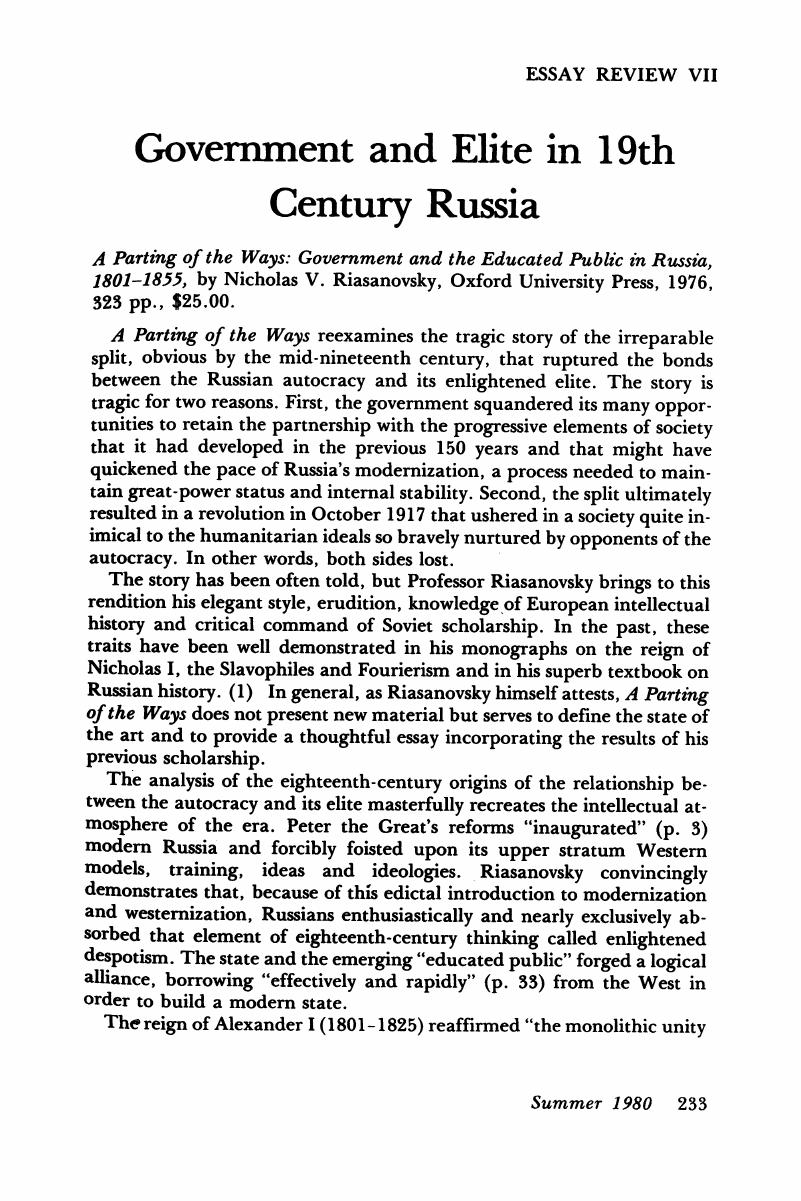No CrossRef data available.
Published online by Cambridge University Press: 24 February 2017

1 Riasanovsky, N. V.: Nicholas I and Official Nationality in Russia, 1825–1855 (Berkeley, 1959); Russia and the West in the Teaching of the Slavophiles: A Study of Romantic Ideology (Cambridge, Mass., 1952); The Teaching of Charles Fourier (Berkeley, 1969); History of Russia (New York, 1969).CrossRefGoogle Scholar
2 Krieger, L., An Essay on the Theory of Engligtened Despotism (Chicago, 1975).Google Scholar
3 Wortman, R., The Development of a Russian Legal Consciousness (Chicago, 1976); Blackwell, W., The Beginnings of Russian Industrialization, 1800–1860 (Princeton, 1968); Pintner, W., “The Social Characteristics of the Early Nineteenth-Century Bureaucracy,” Slavic Review, 29 (Sept., 1970):429–443, and “The Russian Civil Service on the Eve of the Great Reforms,” Social History (Spring, 1975):55–68; Lincoln, B., “The Genesis of an ‘Enlightened’ Bureaucracy in Russia, 1826–1855,” Jahrbücher für Geschichte Osteuropas, 20, no.3 (Sept., 1972):321–330.Google Scholar
4 Whittaker, Consult C. H., “The Ideology of Sergei Uvarov: An Interpretive Essay,” The Russian Review, 37, no. 2 (Apr 1978):158–176.CrossRefGoogle Scholar
5 Kraft, Joseph, “Letter from Moscow,” The New Yorker (Oct. 16, 1978):136.Google Scholar
6 Raeff, M., Origins of the Russian Intelligentsia: The Eighteenth-Century Nobility (New York, 1966); Brower, D., Training the Nihilists: Education and Radicalism in Tsarist Russia (Ithaca, 1975).Google Scholar
7 Black, C., The Modernization of Japan and Russia: A Comparative Study (New York, 1975); Sinel, A., “Problems in the Periodization of Russian Education: A Tentative Solution,” Slavic and European Education Review, 1, no.2 (1977):54–61.Google Scholar
8 Raeff, , Origins, 168.Google Scholar
9 Crankshaw, E., The Shadow of the Winter Palace: Russia's Drift to Revolution, 1825–1917 (New York, 1978).Google Scholar